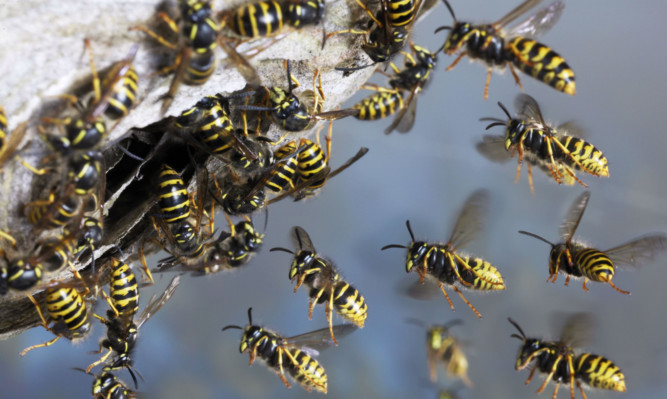The sex lives of wasps may hold the key to stop other animals from buzzing off this mortal coil.
St Andrews University researchers have discovered that under laboratory conditions female wasps live longer by having more than one bedmate.
The work of Rebecca Boulton and David Shuker, published in the journal Evolution, comes after studies into the behaviour of Nasonia vitripennis, commonly known as jewel wasps, collected from a national park in the Netherlands.
They found their laboratory mating rituals differed from the wild.
Ms Boulton explained: “In the wild the female rarely mates more than once. But conditions in the lab are completely different.
“There are more mating opportunities for females in the lab, and females tend to mate more than once.”
By mating with several males the females increased their lifespan and the number of eggs they laid.
And that’s not all they found virgin boys were even more beneficial to the lady wasps.
Females mating with virgins laid more eggs, and this benefit rose if they mated with two or three virgins.
But if they coupled with several males which had been with other females they laid fewer eggs than they would have if they had only mated once.
“In the lab there are more males around than in the wild, and so the likelihood a female will get the opportunity to mate with one or more virgin males is higher,” she added.
Ms Boulton said the work could have implications for animals facing extinction.
“One of the interesting things is that multiple matings might reduce the risk that a female will fail to reproduce at all and so may protect against extinction.”
